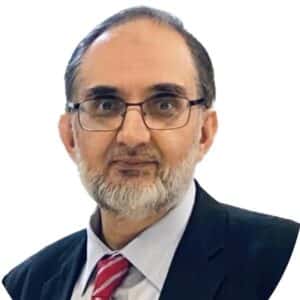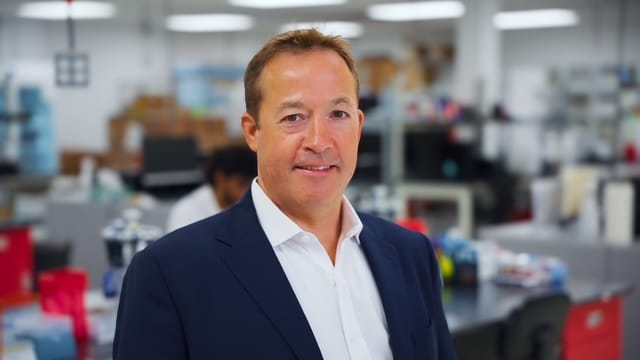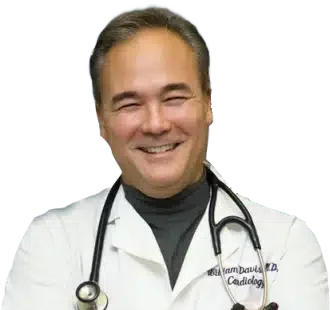FMCA graduates are united in their goal to make a positive impact on individuals and their communities through health coaching. But there are many different paths to success for a health coach after graduation from FMCA’s Health Coach Certification Program.
Mahboob Siddiqui is an FMCA alum and a member of our Alumni Program. In this Alumni Spotlight, Mahboob shares his passion for learning and the way health coaching has become an indispensable part of his career.
“There was this jaw-dropping moment as I was reading through the curriculum. Motivational interviewing. Positive psychology. Behavior change. Empathy. Mindfulness…I thought, although it’s one year, it’s worth one year.”
Mahboob Siddiqui, FMCA graduate
As a former physician who had not practiced medicine since moving to Canada, Mahboob chose to become an FMCHC as a way to develop his qualifications and become more effective in this current phase of his career. He was drawn to FMCA’s program for its extensive curriculum and evidence-based medicine approach. Looking back, Mahboob realizes that, in a way, he’s been a health coach all along. His coaching instincts were always there, waiting to come to the surface. Now, after a year of learning and practicing his coaching skills in FMCA’s Health Coach Certification Program, he says they’ve become second nature.
Mahboob share his experience deciding whether FMCA was the right program for him, shouts out how his amazing course facilitator shaped his time in the program, and expresses joy at the way his cohort has become both a professional network and an extended family. He describes the Alumni Program as “a supportive, encouraging, uplifting community” with a mountain of resources that help him navigate his career after graduation, including starting his business, finding his niche, and so much more.
Thanks for sharing your story with us, Mahboob. You’re an FMCA Graduate for Life!
Watch the Interview
Watch Mahboob Siddiqui’s FMCA Alumni Spotlight interview here.

Mahboob Siddiqui, the founder and director of Health Coaching and Innovative Consultancy (HCIC) Vision Inc., brings over 25 years of diverse experience in healthcare. His professional journey encompasses roles as a physician, radiologist, clinical educator, and product manager. Drawing from this rich background, he has seamlessly transitioned into his current roles as a health coach and management consultant.
In the realm of Health & Wellness Coaching, Mahboob’s passion for unraveling the science behind well-being began during his medical school days. With over two decades of corporate experience, he observed the impact of stress on individuals’ health, prompting him to bridge the gap between clinical knowledge and sustainable wellness practices. Certified by the Institute of Functional Medicine (IFM) and the Functional Medicine Coaching Academy (FMCA), he has embraced a holistic approach to health that goes beyond diets and workouts, focusing on the unique needs of the body, mind, and spirit. His coaching philosophy revolves around discovering “what’s strong with you rather than what’s wrong with you,” combining medical expertise, coaching techniques, and corporate insights. Mahboob aims to guide individuals toward optimal well-being on a personalized wellness journey.
In the realm of Innovative Consultancy, Mahboob is an award-winning healthcare professional/consultant with expertise in clinical education, business development, product management, and customer care within healthcare imaging. Passionate about integrating digital and AI solutions into the dynamic healthcare landscape, he is committed to driving positive change.
Join the FMCA Alumni Program
Explore how you can take your community, your career, and your coaching to the next level in the FMCA Alumni Program. We offer a wide collection of resources and opportunities in the FMCA Alumni Program to help you GROW as a Functional Medicine Certified Health Coach!
You’re not alone! FMCA is committed to your success, and that doesn’t end after graduation.
Transcript
Kerri: All right, thank you for meeting with me today, Mahboob. I’m really excited to be talking with you today. I understand you, like myself, are also a Canadian-trained FMCA health coach, so getting a nice perspective on what functional medicine is like here in Canada. Tell me a little bit about your career as a health coach.
Mahboob: Every day, every morning when I wake up, I have this energy, I have this mission, and I have this drive to wake up and then, you know, do something towards accomplishing this mission. And having said that, you know, I think one of our, like, founders… I forgot. Was it Elyse or Dr. Sandi? But, you know, they said just, you know, to talk about it frequently once you are graduated, you know? And I don’t remember a single day…I’m telling you I don’t remember a single day which passed by and I don’t talk with someone about what we do. So, either it’s like functional medicine or it’s like coaching or the holistic approach that what we do and why we do and how much do we need it in a society within ourselves and then with the people we surround.
So, this is I can tell you about the career so far, but one thing I would like to add here briefly, what I have realized after one year of intensive, I would say, training and sessions, that I was doing that coaching thing for the last several years. I would say maybe more than 15 years. But, you know, it was without knowing that I was doing coaching, and it was without any structure, without any, you know, like… Now, when I do coaching or I try to do coaching, the reflections are in here. So, I know what I have to talk to. Like, you know, one, two, three, four. So, I do have those steps. And, again, thanks to this extended curriculum of FMCA, you know, the coach approach, not the expert approach but the coach approach, you know, how to listen empathetically, then how to reflect and then, you know, how to, like, be, like, you know, mindful when you talk to your, you know, clients, whatsoever. I didn’t know that structurally, you know, or like… So, now it’s in my reflexes. And now what I do, we do these coaching sessions, although very limited, but we know it by heart, we know it by reflexes what we are doing and what we are supposed to do.
So, I hope, Kerri, that answers your question about the career or coaching experience so far.
Kerri: Yes, it does. Thank you so much. And, you know, of course, that’s very true to the coach approach, it’s education. And it sounds like you’re doing exactly that. Every day you’re out there educating the general public, whoever it is that you run into, the lady at the grocery store or a physician…
Mahboob: Exactly. You just took… Yeah, yeah.
Kerri: …about what functional medicine is. Yeah.
Mahboob: I really do that. Even, you know, with the cashier, the lady who’s on the cashier, like, you know, I find out where to communicate with her, right, and then tell something about either coaching or about being well, that how important it is. Yes.
Kerri: Yeah, that’s so important. And, you know, I think it’s interesting even if you’re not telling them about functional medicine or health coaching, that you are applying your coaching skills in many interactions that you have throughout your daily life. I think about that lady at the grocery store, and if you happen to see that she’s smiling and happy, you know, you can use that coach approach and reflect back saying, “Wow, you must really enjoy your job. You seem very happy and I can see by the big smile on your face that this brings joy to you.”
Mahboob: Exactly, exactly. That’s what I do. Yeah, yeah.
Kerri: Yes, wonderful. That’s wonderful. Thank you for sharing that. So, tell me how did your student experience at FMCA support you for your career or for where you would like to go for your career.
Mahboob: So, again, another great question. And before that, let me tell you two things. I am in a habit of, you know, like, you can call it as a perfectionist approach. But whenever I do something, I deep dive into it, right? And that’s what exactly happened with me when I was… So, let’s go back to July 2022, you know, when for the first time I came to know through a friend. So, this friend, she is a practicing physician and MD, and she is in Florida right now. And, you know, like, so we did our medical school together, and somehow I found her, like, you know, after, let’s say, 15 years.
So, we connected on Facebook and then, you know, as we do that, “Hey, how are you? How is family? What you are doing, what I’m doing, blah, blah, blah.” So, when I was telling her that I’m working now as a consultant and I was, you know, 20 plus years I was working with this company in a corporate role and traveling the world, blah, blah, blah, you know? And when I ask her what you are doing, she said, “I was doing a regular family physician practice MD, but recently I found something fascinating and it is IFM.”
So, that was the first time I came to know officially what IFM was. And then she said, “You know what? I know you. You have been working voluntarily so much.” Because she knew from my medical school, right, and I used to work for poor patient societies, you know, any sort of volunteer work, anybody wanted, you know? So, they used to come to me for, you know, any sort of arranging, you know, like, a charity dinner or all those activities. So, I would, you know, love to do that. So, she said, “Since you do a lot of these things, why don’t you consider the holistic thing? Why don’t you consider, you know, have a look into IFM?” Okay.
So, I started to look into IFM. It’s now July 2022 and that was the time when I came across with FMCA. And then there were two parts, you know, moving fast forward. So, there were two parts. One of that was IFMCP and the other was FMCA, right? So, for the listeners, I think they know about it, but one of them is for the licensed physicians who are already in practice, and the other one, which is FMCA, is for the coaching, which is for not licensed or not practicing physician. Now, I was a physician, but I never practiced in Canada as a physician, so I thought that this second approach, it resonated more with me, you know, as a coach, because then I don’t have to go back to, you know, that licensing process and then opening up an office, you know, all those admin work. So, I opted for FMCA.
And then we started deep diving into FMCA. I came across other programs, other courses as well which were being offered in Canada, you know? Like, I cannot take the names, but they were being offered here in Toronto and also in the U.S. So, some of them they were like for three months. Some of them they were like for 6 months, 12 weeks, you know, stuff like that.
So, again, going through the curriculum, it was, you know, just like the jaw-dropping moment each time when I was reading through the curriculum: motivational interviewing, positive psychology, you know, behavioral changes, the empathy, mindfulness, you know, mind-body connection. You just name it. I cannot remember the whole… I cannot recall the whole thing. So, I thought, “No, although it’s one year, but it’s worth one year of engagement.” And, you know, so I talked to Sandi. First of all, I attended one of the calls, which all the, you know, students there, it has been offered like, you know, a discovery call. And then I requested Dr. Sandi for one-to-one, and, you know, now I realize her, again, you know, Dr. Sandi’s flexibility and her, you know, bravery really see the superwoman. Kerri, she’s a superwoman. I couldn’t figure out how she manages everything, you know, with being so much, so much busy. But the moment I finished call with her, I think I was totally convinced. I registered myself, you know, and, yeah, this is Part 1.
Part 2, I would say, I was very, very, very lucky that I got my course facilitator, and I would like to take her name, you know? So, she is Jan. Jan Goldberg. And, again, you know, all across the board, whoever is there, they’re all brilliant, but I would say that she resonated with us or with me a lot, you know? And having said that, I did not miss a single class of her. Not a single class in whole one year. Every Thursday, our cohort was from 8 to 10 p.m. And no matter I make sure that I should attend. So, that whole one year, it sets a great momentum of learning for me that, you know… As we were discussing earlier the real character strengths, there were so many things which I didn’t know about myself, right? And one of my top character strengths is love of learning. Apart from other five, but love of learning, which, you know… So, I realized. And then I don’t want to stop it today or, you know, even in my rest of the life.
So, this is how I can explain. I thoroughly enjoyed it. I met wonderful, wonderful, you know, cohorts, our, like, you know, fellow students. And we are now, you know, very good, I would say, friends. We are an extended family, okay? We are in touch even today, and I don’t see any reason that we won’t be interacting in the future. So, yeah, great experience, great people. And as I said, I would like to be a student for rest of my life now.
Kerri: Wonderful. Thank you for sharing that, Mahboob. You know, it’s interesting that you talked about love of learning as your top character strength. I feel that many of us coaches have that as our top character strength.
Mahboob: Absolutely, absolutely.
Kerri: Or, you know, top five, right? Yeah, which is why we all, sort of, are here. And so it sounds what I’m hearing that, for you, your student experience with FMCA really was about the extensive curriculum, the evidence-based medicine approach, obviously your facilitator, and all the other wonderful people in your cohort, the students that you remain in touch with today as your colleagues. Just talking about FMCA’s alumni program, could you tell me a little bit about how it helped you and what your epxrience has been like?
Mahboob: Structurally, you know, there is so much to talk, but since you have asked me specifically about FMCA alumni program, and to me it’s the end of, you know, what we have been going through throughout the year, right? Like, being a student and going through the whole program and now be a part of alumni. So, in a very short answer, I would say that being a part of alumni program, it’s like oxygen, you know, for me to breathe in every day. It’s like I can symbolize it with water, you know, for a fish to survive once, you know, it’s out there, because it’s such a supportive and encouraging, uplifting community. I cannot imagine myself surviving without it in simple words.
Kerri: Oh, that’s so beautiful.
Mahboob: Yeah, yeah, yeah. And I think with my words, I cannot justify what I’m trying to say, but, you know, it’s like it’s a must. If alumni program wouldn’t be here, I could not have, I would say, you know, survived. And survival, in a way, that after, you know, we graduate…like, everywhere happens, when we graduate, we have our own paths. We have our own, you know, plans and career paths whatsoever. But this community, it gives you so much, you know, like, community feeling because the practical questions, the practical queries when we graduate and we come out, the only place to get the answers is through the alumni program, you know, with fellow graduates, with seniors, with, you know, the ones who are joining right now and plus, you know, the faculty plus the… I love to be in office hours. And I can tell you really religiously that I don’t remember missing any office hours until today, which I could.
Kerri: Wow.
Mahboob: Yeah, you know? CCB, the Connect Collaborate and Build Program, every program has its own, like, you know, flavor, it’s own importance, but in a nutshell, they were very helpful until today, and I’m looking forward, you know, to get benefit out of it and to be part of, you know, the whole community in the coming days, months, or years.
Kerri: Wonderful. Thank you so much for your time today, Mahboob. I really appreciate your…
Mahboob: Yeah, Kerri, pleasure is all mine, but if you give me only couple of minutes, I would like to just say one thing more about…
Kerri: Absolutely, absolutely.
Mahboob: …alumni program. You know what? So, every one of us, you know, we’re out there, right? We are online. We are using social media, everything, and because of this artificial intelligence algorithm or whatsoever, you know, we have been bombarded with all the, you know, resources out there, right? Like, you know, coaching of the coaches. This business coach. That business coach. You know, that crash program. Without taking any names, we have been overwhelmed, if you agree with me.
Kerri: Mm-hmm, yes.
Mahboob: Right?
Kerri: Yeah.
Mahboob: So, as a human being or as a fellow, you know, voyager or discoverer, I went through them as well. And that’s the point here, my bottom line is, when I compare to our existing resources in alumni program, right, I can tell you with 100% confidence that what I’m doing right now, luckily, you know, we have an excess of all that material, of all those resources within the alumni program. And if you are not in alumni program, as an ex-student, you have an access to all those resources, right? So, what I have done now, to keep up my momentum as well, I go through these modules on weekly basis, right? You know, just one of them starting from Module 1, Module 2, right? So, let’s say, this is now November. I have gone through Module 3 with my own pace, with my own. But let me tell you, each time I’m going through them, there is something new which I understand in a much better way which I could understand at that time as a student. Please go through all that resources. I would say it’s a mountain of resources. It’s a treasure of information, you know, about how to start the business, how to start the niche, how to do this, how to do that. So, that career navigation is something worth to go, you know, at your own pace. But please go through it. It’s such a wonderful tool.
Kerri: I’m hearing your strength of perseverance here as well.
Mahboob: It is really. And I highly recommend to go through all those resources once again. And you will feel like a new perspective each time. With that practical training which you have been through with PSD1s, PSD2s, you know, with all those exercises, now when you listen to them, when you read them, it gives you a new perspective.
Kerri: Thank you for sharing that. I really appreciate that, you know, and I think, as coaches, you know, when we’re not coaching, we like to watch coaching. And, you know, you learn something from every coaching interaction that you see and you get to see how people, you know, there are different coaching styles and how people coach a little bit differently. And you can take those, you know, tips and tricks and apply it to your own coaching style as well, right?
Mahboob: Absolutely, absolutely. Yeah.
Kerri: Mm-hmm, wonderful. Thank you so much, Mahboob. What an enlightening conversation it is to, you know, always share and hear your perspective. So, thank you so much for your time and…
Mahboob: You are most welcome and thank you, Kerri. Pleasure is all mine.
Kerri: Thank you.
Our Latest Blogs
-

Food Sensitivity Testing 101: Supporting Clients with Inflammation and Gut Issues
Read Full Article: Food Sensitivity Testing 101: Supporting Clients with Inflammation and Gut Issues -

Protein 101: The Health Coach’s Guide
Read Full Article: Protein 101: The Health Coach’s Guide -

Women’s Health and the Vaginal Microbiome: A Probiotic Breakthrough
Read Full Article: Women’s Health and the Vaginal Microbiome: A Probiotic Breakthrough

